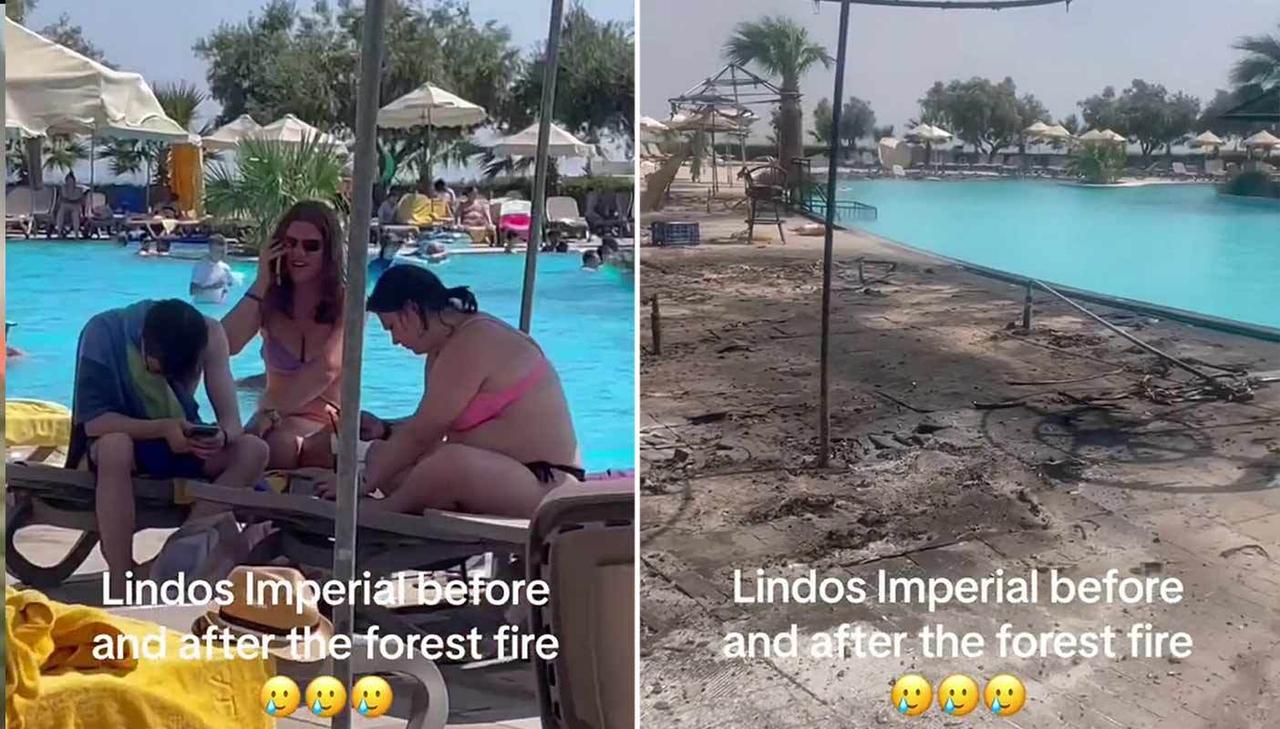
A video taken by a tourist in Greece shows the hotel they were staying in before and after the devastating wildfires.
The video, filmed by tourist Sarkawt Fairouzi, shows holidaymakers enjoying the sun by the pool and the burnt remains of sun loungers and umbrellas after the blaze.
Sarkawt, 41, and his family were staying at the luxury five-star hotel Lindos Imperial on the island of Rhodes, Greece, when the fires broke out.
Sarkawt said: "Every morning we would wake up and ash would be falling from the sky.
Everyone was there: children, families.
The smell of burning wood was really strong." Sarkawt and his family - from Gothenburg in Sweden - were evacuated on July 21 to a nearby town when the wildfires surrounded the hotel.
Two days later, when the situation was no longer dangerous, Sarkawt and his family returned to the hotel and were confronted with devastating scenes.
The pool area had been completely ravaged by the fire with only charred remains of sun loungers and umbrellas left behind.
The family, who runs an employment agency, was unable to get their belongings before evacuation although luckily they weren't damaged by the fire.
Sarkawt added: "The hotel was destroyed.
The whole pool area was gone.
All the chairs and umbrellas.
It was very sad." Greece hit hard by wildfires Greece has been particularly hard hit by fires, with authorities evacuating more than 20,000 people in recent days from homes and resorts in the south of the holiday island of Rhodes.
Close to 3,000 holidaymakers had returned home by plane as of Tuesday, according to figures from the Transport Ministry, and tour operators have cancelled upcoming trips.
Extreme weather throughout July has caused havoc across the planet, with record temperatures in China, the United States and southern Europe sparking forest fires, water shortages and a rise in heat-related hospital admissions.
Without human-induced climate change, the events this month would have been "extremely rare", according to a study by World Weather Attribution, a global team of scientists that examines the role played by climate change in extreme weather.
The heat, with temperatures topping 40 Celsius (104 Fahrenheit), is well in excess of what usually attracts tourists who flock to southern European beaches.
